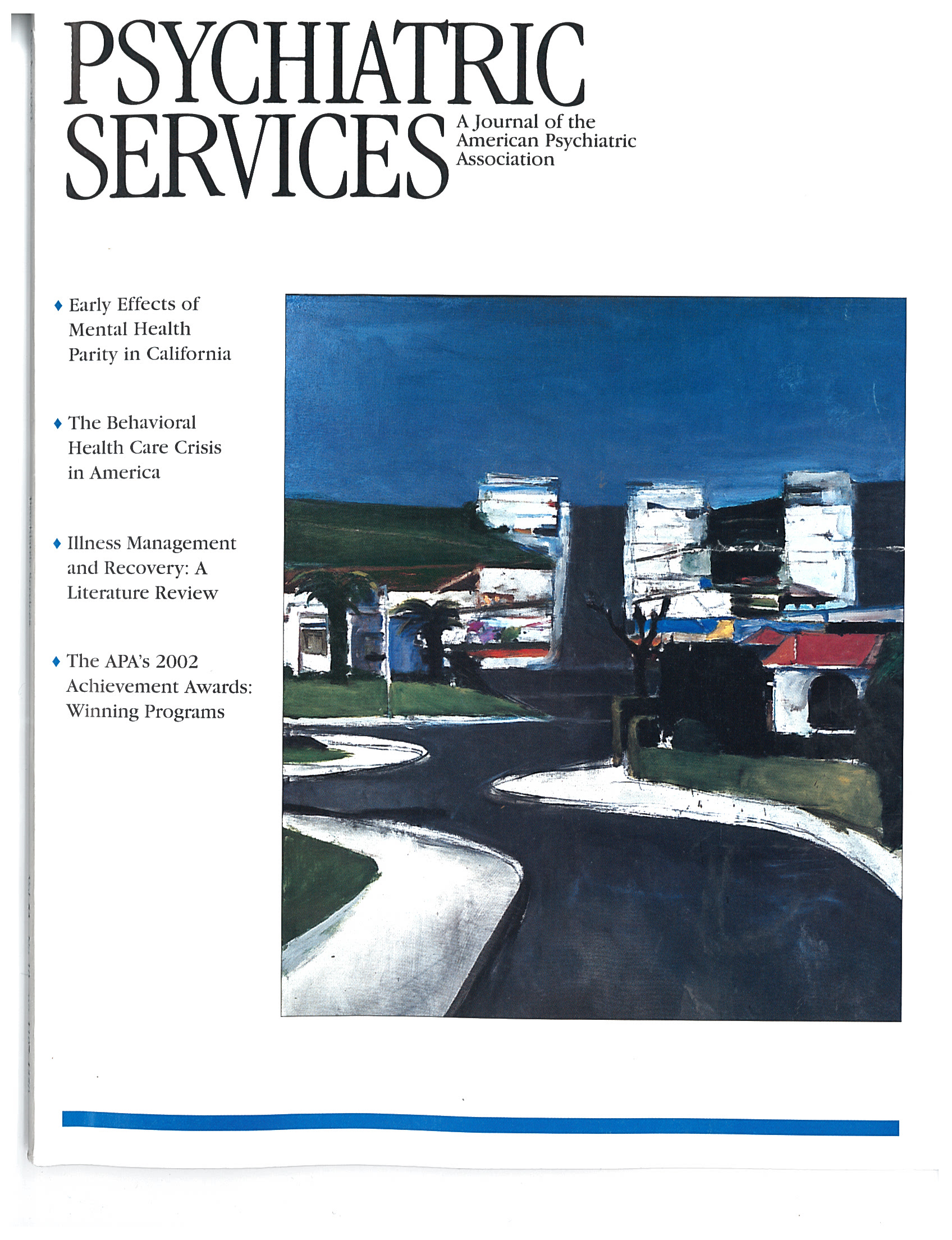To the Editor: In an article in the June 2002 issue, the committee on addictions of the Group for the Advancement of Psychiatry (GAP) (
1) discussed the problem of individual responsibility in the face of the biological, psychological, sociocultural, religious, self-help, and forensic factors that constitute the infrastructure of the addictive disorder and the recovery process. The article does not have a section on clinical factors, but the authors note that patients with addictions cover a spectrum ranging from those whose abstinence is strongly related to personal responsibility to those who may not be fully able to exercise free will. "Nevertheless," they conclude, "we expect patients to take responsibility for seeking out and participating in their treatment."
While the debate continues, clinicians must make daily decisions about responsibility, and their worldviews play an important role in such decisions. To what extent does addiction fall into Schopenhauer's "Kingdom of Nature" (scientific and deterministic) or his "Kingdom of Grace" (free will)? The laws that legislators and policy makers create to protect society reflect the worldviews dominant at the time, and those worldviews and laws, continually evolving, have shown increasing liberalization over the past two centuries. Both utilitarian considerations (that is, outcome) and humane considerations, which are major factors motivating those changes, have profoundly affected our approach to addiction and recovery.
In England in 1603,
Beverley's Case (
2) found that "drunkenness doth aggravate" rather than excuse or mitigate an offense, as "lunacy" and retardation did.
M'Naghten's Case in 1843, which defined the cognitive prong in the insanity defense (the extent to which a defendant understands an action and knows it was wrong) did not apply to addiction. Decisions such as
Hadfield's Case and
Reg. v. Oxford in England in the early 1800s and
Comm. v. Rogers, Isaac Ray, and the New Hampshire Rule in the United States later in the century developed the volitional prong that applied to addiction (the capacity of the individual to refrain from carrying out the impulse).
Liberalization of attitudes toward addiction and exculpation of addicts from responsibility reached their apogee in 1954 in
Durham v. U.S. and in some of the cases from the 1960s cited in the article by the GAP committee. At that point it appears that the U.S. Supreme Court believed it had gone too far, and society was endangered. In
Budd v. California in 1966 and
Powell v. Texas in 1968, it began a retreat. In the 1988 case of
Traynor v. Turnage (
3), Justice White stated that even among advocates of the disease model "the consumption of alcohol is not regarded as wholly involuntary." Justice Blackmun noted that "some [of the causes] conceivably could be attributed to [the] will." Further retreat regarding the volitional prong occurred after Hinckley's assertion of the volitional prong of the insanity defense following his attempted assassination of President Reagan.
In
Powell v. Texas (
4) Justice Marshall stated, "We cannot cast aside the centuries-long evolution of the collection of interlocking and overlapping concepts which the common law has utilized to assess the moral accountability of an individual for his antisocial deeds." He spoke of "a constantly shifting adjustment of the tension between the evolving aims of the criminal law and changing religious, moral, philosophical, and medical views of the nature of man."
Philosopher A. J. Ayer wrote (
5): "The 'theological' concept of free will is utterly confused … [but] … there is a case for retaining a muddled concept of free will, just insofar as the myths it engenders are salutary." On that utilitarian basis, clinicians too must hold to the agency of the will—the self, the "ghost in the machine"—embedded in biology, sociology, psychology, and religion to achieve the salutary effects that we see every day in our work with individuals in programs of recovery from addiction. Myths perhaps, but useful for recovery.

